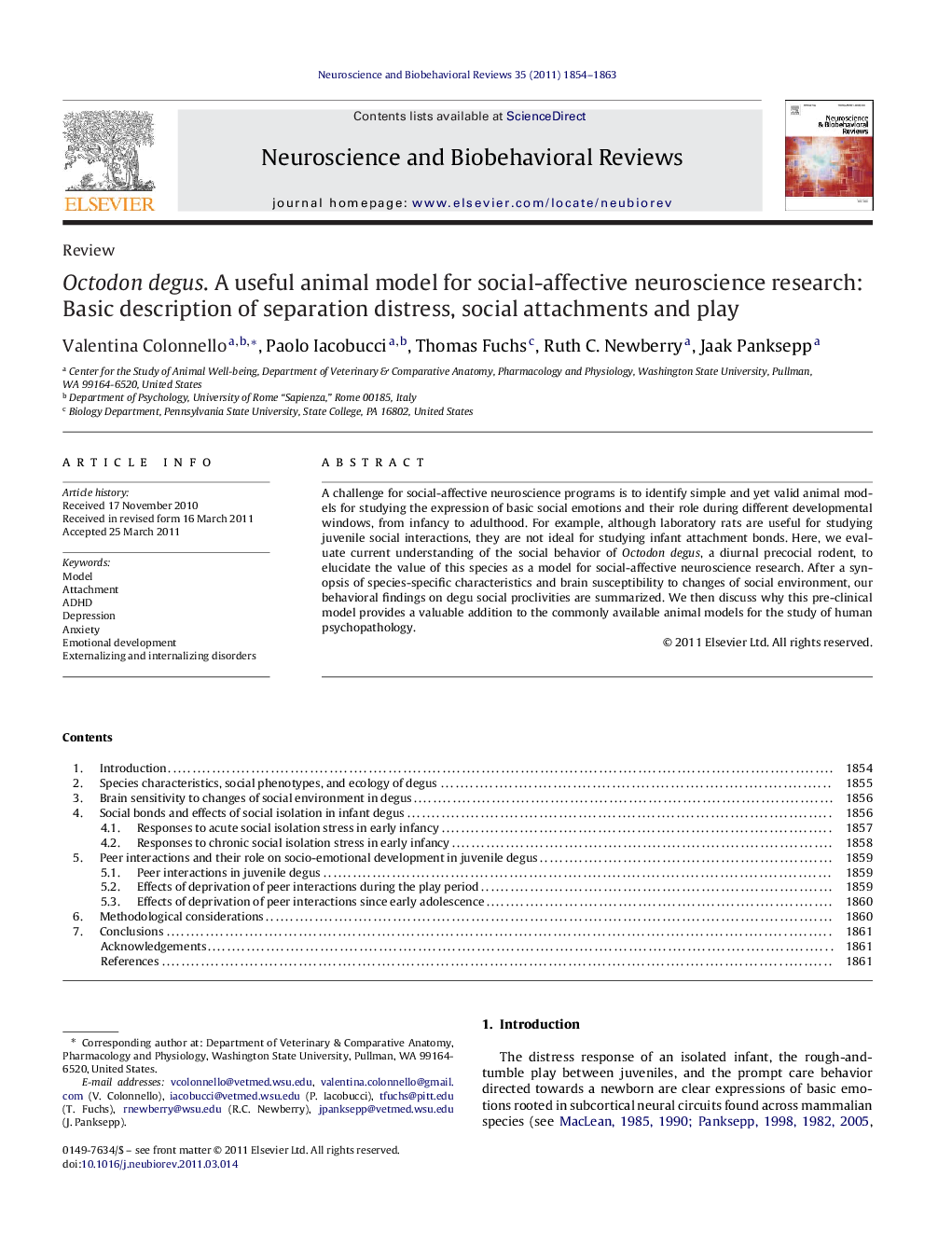| Article ID | Journal | Published Year | Pages | File Type |
|---|---|---|---|---|
| 937593 | Neuroscience & Biobehavioral Reviews | 2011 | 10 Pages |
A challenge for social-affective neuroscience programs is to identify simple and yet valid animal models for studying the expression of basic social emotions and their role during different developmental windows, from infancy to adulthood. For example, although laboratory rats are useful for studying juvenile social interactions, they are not ideal for studying infant attachment bonds. Here, we evaluate current understanding of the social behavior of Octodon degus, a diurnal precocial rodent, to elucidate the value of this species as a model for social-affective neuroscience research. After a synopsis of species-specific characteristics and brain susceptibility to changes of social environment, our behavioral findings on degu social proclivities are summarized. We then discuss why this pre-clinical model provides a valuable addition to the commonly available animal models for the study of human psychopathology.
► we summarize our work with a new animal model, the degu (Octodon degus) ► Infant degus modulate their separation responses and recognize their mother ► Isolation during play-period alters risk-taking behaviors and reward processing ► Isolation during early-adolescence induces neophobia ► Degu is a fine model for advancing knowledge on social bonds and psychopathology
